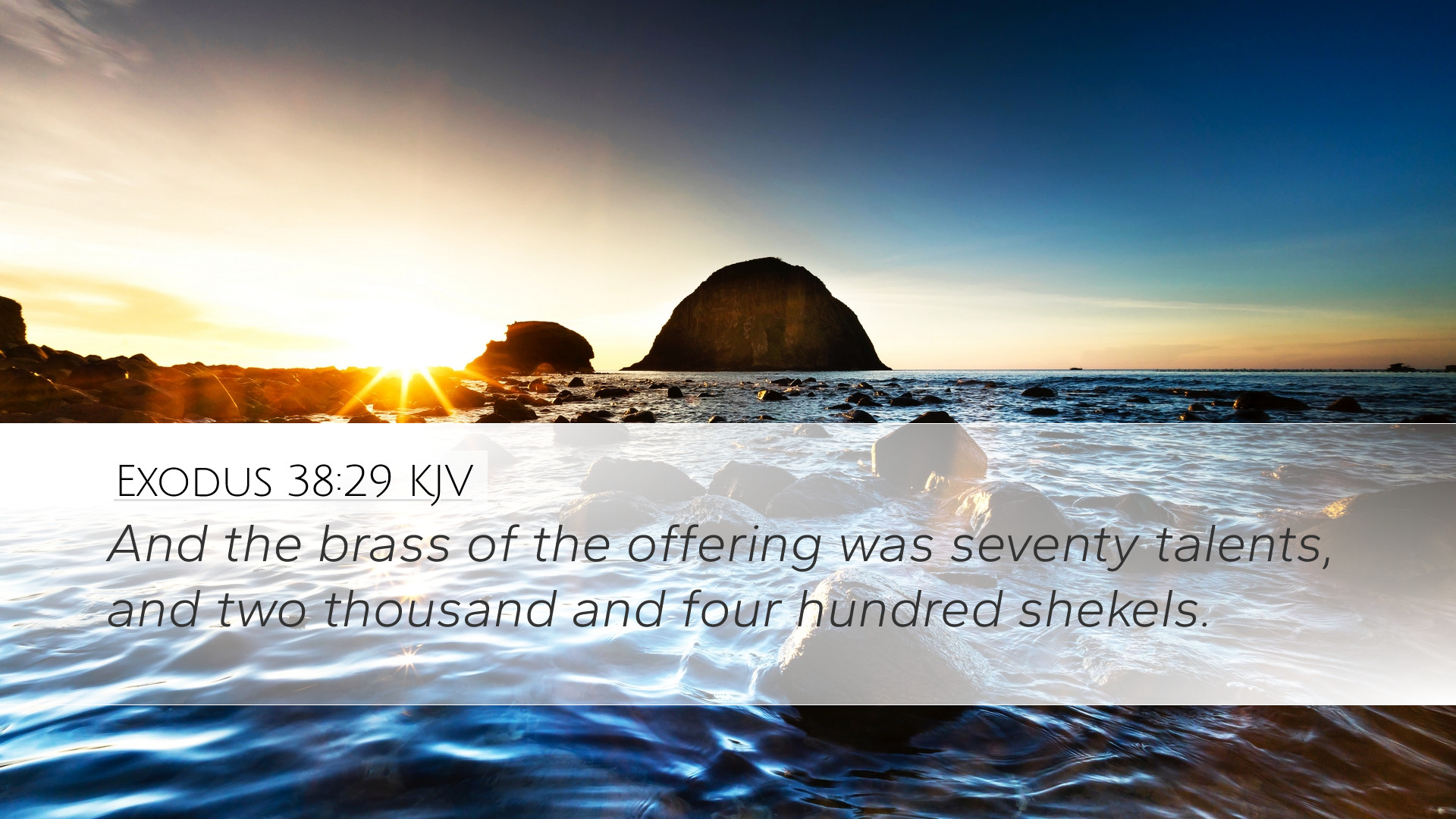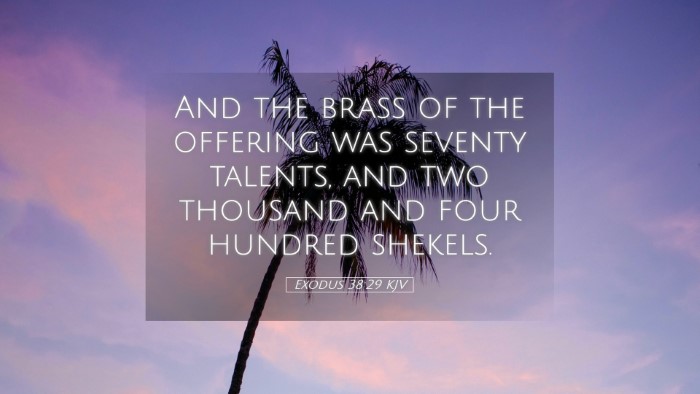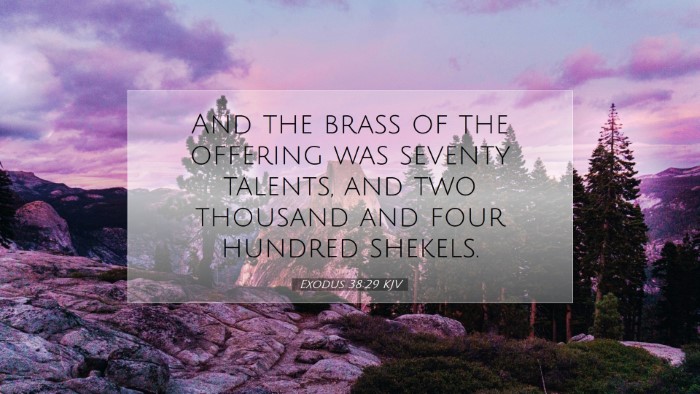Bible Commentary on Exodus 38:29
Verse Reference: Exodus 38:29 - "This is the sum of the things of the tabernacle, even of the tabernacle of testimony, as they were accounted according to the commandment of Moses, for the service of the Levites, by the hand of Ithamar, son of Aaron the priest."
Introduction
The verse marks a significant conclusion to the detailed account of the materials used in the construction of the tabernacle. It emphasizes the organized and divinely prescribed nature of God's house. The observation of the craftsmanship involved, overseen by Key figures like Moses and Ithamar, points to the importance of obedience and order in spiritual matters.
Contextual Insights
In the broader narrative of the Book of Exodus, this verse comes after extensive descriptions of the tabernacle’s construction in previous chapters. The tabernacle symbolizes God’s dwelling among His people and His desire for intimate fellowship with them. Contextually, the assembly of these materials reflects themes of dedication, community involvement, and God's providential care.
Commentary Insights
Matthew Henry's Commentary
Matthew Henry elaborates on the understanding of the tabernacle being a representation of God's glory and the relationship between God and His people. He emphasizes that every detail has spiritual significance, pertaining not only to the historical context but also to the continuity of God’s redemptive plan through time.
- Divine Evidences: Henry argues that the meticulous account demonstrates God's attention to detail, affirming that He values precision in His service.
- Representation of Christ: He notes that the tabernacle foreshadows Christ, where the fullness of God dwells.
- Role of the Priests: The mention of 'Ithamar' underscores the human element in divine service, illustrating how God employs chosen individuals for His purposes.
Albert Barnes' Notes
Albert Barnes provides a detailed analysis of the language used in this verse. He emphasizes the phrase "the sum of the things" which indicates God's organized approach to worship. He discusses how this careful accounting reflects the integrity and accountability expected in ministry.
- Accountability in Ministry: Barnes stresses that record-keeping in sacred matters points to the seriousness of God’s work and the people’s commitment to stewardship.
- The Role of Ithamar: He highlights Ithamar's involvement as significant, reflecting the importance of each leader within the community that God calls for service.
- Service of the Levites: The Levites are chosen for their sacred duty, signifying the distinctiveness of spiritual leadership and communal worship.
Adam Clarke's Commentary
Adam Clarke draws attention to the enriching components of the tabernacle and their theological implications. He emphasizes the tabernacle as a precursor to the church, framing the narrative within the larger scope of biblical history and its unfolding revelation.
- Cultural Reflections: Clarke points out that the details also encapsulate cultural guidelines for the Israelites and their encounters with God.
- Symbolic Representation: He argues that every item in the tabernacle represents aspects of Christ's mission and His eventual sacrifice for humanity.
- Obedience and Submission: Clarke underscores that the account demands obedience from the people of Israel, teaching them that their relationship with God hinges on submission to divine authority.
Theological Implications
This verse and its commentary open discussions on several theological principles:
- Divine Order: The emphasis on structure indicates the necessity of order within worship and how God, in His holiness, sets parameters for interaction with Him.
- Communal Responsibility: All believers have a role akin to the Israelites tasked with building the tabernacle; we are called to contribute to God's work in a unified way.
- Redemptive History: The tabernacle foreshadows God's ultimate dwelling with humanity through Christ, culminating in future eschatological fulfillment.
Practical Applications
This exploration of Exodus 38:29 leads to several applicable insights for modern readers:
- Stewardship in Ministry: The need for precise planning and execution in church activities, advocating for accountability in financial and resource management.
- Value of Community: Encouraging collaboration among believers in fulfilling God's mission, echoing the communal efforts seen in the building of the tabernacle.
- Mindfulness of Holiness: Approaching worship with an awareness of God's holiness, reflecting on how worship spaces are treated with reverence and care.
Conclusion
Exodus 38:29 serves as a crucial reminder of God's direction in worship and the crucial roles individuals play in realizing His plans. The reflections of Henry, Barnes, and Clarke help deepen the understanding of this verse, pointing to the necessity of reverent service, the beauty of divine design, and the continuing unfolding of God’s glory throughout redemptive history.


